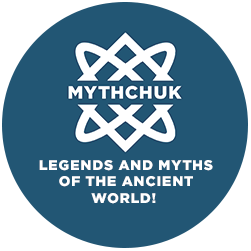Greek Myths, Legends, and Tales
- Main
- >
- Greek Mythology
- >
- Greek Myths, Legends, and Tales

 Greek Myths, Legends, and Tales
Greek Myths, Legends, and TalesLet us travel to the southern reaches of Europe, to the enchanting shores of the Balkan Peninsula, and breathe in the fresh air of the Aegean Sea. Once upon a time, this land flourished as Hellas—ancient Greece—the cradle of culture for nearly all of Europe and beyond. The myths of the ancient Greeks, dating back to the 2nd–1st millennia BCE, are among the best preserved to this day.
According to the earliest recorded myths, the Greeks believed the world originated from Chaos. They perceived nature and the surrounding world as living and conscious entities. First came Gaia—Mother Earth—who gave birth to all that lives and thrives on the planet. Natural phenomena were personified as divine, sentient beings. But as humans learned to tame and understand the forces of nature, their mythology evolved. Anthropomorphic gods emerged and formed a complex, well-organized pantheon led by Zeus.
These gods dwelled on Mount Olympus and bore human form—except for their immortality. Their divine abode was a realm of perpetual fair weather, feasts, and enchanting music sung by the Muses. Sometimes, they descended to the mortal world, interacted with people, and even had children with them.
Greek myths and legends primarily aim to explore these relationships—between gods themselves, and between gods and mortals. And judging by their legacy, they succeeded brilliantly.
